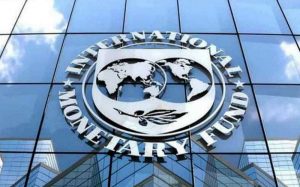The International Monetary Fund (IMF) has forecasted a slowdown in Nigeria’s economic growth for 2024, projecting an increase of just 2.9 per cent. This projection, detailed in the latest World Economic Outlook (WEO) report released on Tuesday, indicates that the growth rate will remain unchanged from 2023.
This new forecast reflects a 0.2 per cent downgrade from the IMF’s July projection and a 0.4 per cent decrease from the earlier estimate made in April. The IMF attributed this revision to slower-than-expected economic activity in the first half of the year.
Jean-Marc Natal, deputy chief of the IMF’s Research Department, elaborated on the challenges facing Nigeria’s economy during a press conference unveiling the WEO at the ongoing IMF/World Bank annual meetings in Washington, D.C. He highlighted disruptions in agriculture and oil production as critical factors contributing to the revised growth forecast.
Natal stated, “We have revised Nigeria’s growth for 2024 down by 0.2 per cent. The situation is volatile due to issues in agriculture caused by flooding and problems in oil production related to security and maintenance. These two factors have significantly impacted production.”
Despite the downward adjustment for 2024, the IMF anticipates a slight improvement in growth for 2025, projecting an increase to 3.2 per cent, which is 0.2 per cent higher than earlier forecasts in July and April.
In contrast, the IMF’s projection is notably lower than that of the World Bank, which expects Nigeria’s Gross Domestic Product (GDP) to grow by 3.3 per cent in 2024 and to accelerate slightly to 3.6 per cent in 2025-2026. The World Bank’s recent report, Africa’s Pulse, indicated that economic growth would improve as macroeconomic and fiscal reforms begin to take effect.
The report noted, “Economic growth in Nigeria is projected at 3.3 per cent in 2024 and 3.6 per cent in 2025–26 as macroeconomic and fiscal reforms gradually start yielding results. Inflation peaked at 34.2 per cent year-on-year in June 2024 but has since decreased to 33.4 per cent in July and 32.2 per cent in August.”
For the IMF, Nigeria’s inflation is expected to decline from an average of 32.55 per cent in 2024 to 25 per cent by 2025. During the press conference, the IMF urged nations facing high inflation, including Nigeria, to implement tighter monetary policies to stabilise their economies.
Pierre-Olivier Gourinchas, the IMF’s economic counselor and director of research, emphasised the necessity of balancing monetary and fiscal policies to effectively address inflation and debt challenges. He stated, “In countries with very high inflation, we recommend a tight monetary policy stance. When feasible, fiscal consolidation can help, although this is complicated by the trade-offs many nations face.”
Gourinchas cautioned against excessive austerity, warning that it could hinder economic recovery efforts. “If you try to do too much too quickly, you might adversely impact growth. Most countries have significant spending needs, especially in areas like healthcare and public investments,” he said. “We need to protect spending that supports growth.”
In the first and second quarters of the year, Nigeria’s economy grew by 2.98% and 3.19%, respectively, despite rising inflation and further depreciation of the naira.





